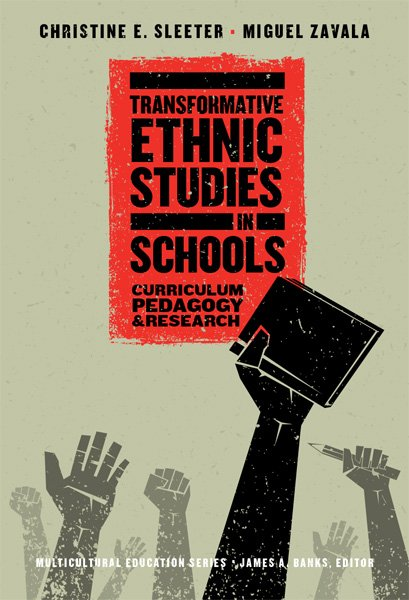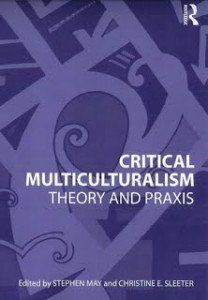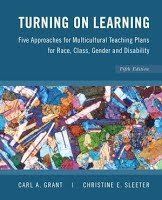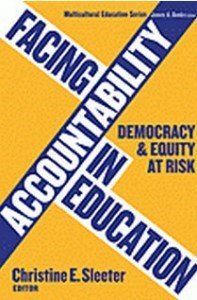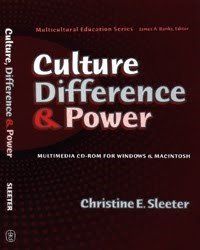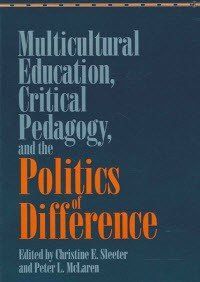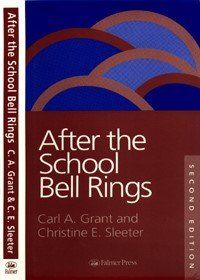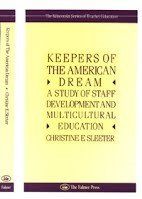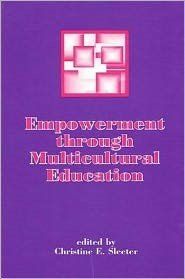Christine Sleeter
Non-Fiction Books
Critical Race Theory and its Critics
López, F. & Sleeter, C. 2023. New York: Teachers College Press.
Who and what are behind the attacks on Critical Race Theory (CRT)? Why are attacks on the teaching of racism happening now and what can be done about them? In this book, López and Sleeter answer these questions in an effort to intentionally and strategically provide readers with sustainable tools for teaching toward an equitable future. This comprehensive book includes an overview of today’s controversy surrounding CRT; a historical account of efforts to thwart fair and unbiased education opportunities; research on why these efforts have been successful; and ways for teachers, school leaders, and researchers to address this pushback in their own work. Contrary to claims by critics of CRT, research supports that addressing racism in the classroom is an integral part of a broader effort in ensuring that all children thrive. Written in an accessible style for a broad audience, Critical Race Theory and Its Critics offers evidence-based recommendations on messaging (including social media), organizing, and sharing research.
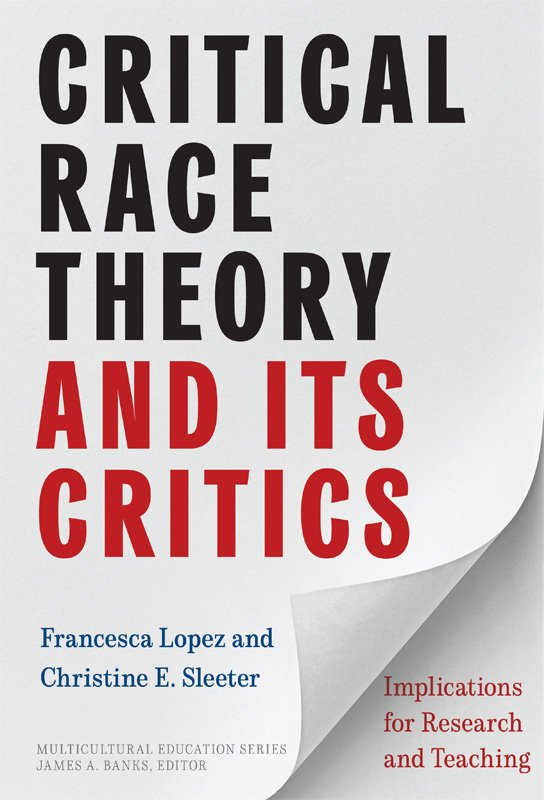
Rethinking Ethnic Studies.
Cuauhtin, R. T., Zavala, M., Sleeter, C. & Au, W. 2019.
Milwaukee, WI: Rethinking Schools, Ltd.
Gloria Ladson-Billings, University of Wisconsin-Madison and President, National Academy of Education
Kevin Kumashiro, author of Bad Teacher!
Antonia Darder, Leavey Endowed Chair of Ethics & Moral Leadership, Loyola Marymount University
Nolan L. Cabrera, University of Arizona
Un-standardizing Curriculum
Sleeter, C. E. & Flores Carmona, J. 2017. Un-standardizing Curriculum: Multicultural Teaching in the Standards-Based Classroom, 2nd ed. New York: Teachers College Press.
Diversifying the Teacher Workforce
Sleeter, C. E., Neal, L. I., & Kumashiro, K. K. Eds. (2014). Diversifying the Teacher Workforce: Preparing and Retaining Highly Effective Teachers. New York: Routledge.
Power, Teaching, and Teacher Education
Sleeter, C. E. 2013. Power, Teaching, and Teacher Education: Confronting Injustice with Critical Research and Action. New York: Peter Lang.
Nominated for the 2015
AERA Outstanding Book Award
Creating Solidarity across Diverse Communities
Sleeter, C. E. & Soriano, E., Eds. 2012. Creating Solidarity across Diverse Communities: International Perspectives. New York: Teachers College Press.
School Education, Pluralism and Marginality
Sleeter, C. E., Upadhyaya, S. B., Mishra, A. & Kumar, S., Eds. 2012. School Education, Pluralism and Marginality: Comparative Perspectives. Andhra Pradesh, India: Orient Black Swan.
Professional Development for Culturally Responsive and Relationship-based Pedagogy
Sleeter, C. E., Ed. 2011. Professional Development for Culturally Responsive and Relationship-based Pedagogy. New York: Peter Lang.
Teaching with Vision
Sleeter, C. E. & Cornbleth, C., Eds. 2011. Teaching with Vision: Culturally Responsive Teaching in Standards-Based Classrooms. New York: Teachers College Press.
Choice Outstanding Academic Title, 2011
From the Foreword by Bill Bigelow, Rethinking Schools & Linda Christensen, Lewis and Clark College
Doing Multicultural Education for Achievement and Equity
Grant, C. A, & Sleeter, C. E. 2011. Doing Multicultural Education for Achievement and Equity, 2nd. ed. New York: Routledge; translated into Korean.
Critical Multiculturalism: Theory and Praxis
May, S. & Sleeter, C. E., Eds. 2010. Critical Multiculturalism: Theory and Praxis. New York: Routledge.
Making Choices for Multicultural Education
Sleeter, C.E. & Grant, C.A. 2009. Making Choices for Multicultural Education, 6th ed. New York: Wiley; translated into Korean.
Turning on Learning: Five Approaches for Multicultural Teaching Plans
Grant, C.A. & Sleeter, C.E. 2009. Turning on Learning: Five Approaches for Multicultural Teaching Plans, 5th ed. New York: Wiley
Facing Accountability in Education: Democracy and Equity at Risk
Sleeter, C. E., Ed. 2007. Facing Accountability in Education: Democracy and Equity at Risk. New York: Teachers College Press.
Culture, Difference and Power
Sleeter, C. E. 2001. Culture, Difference and Power. New York: Teachers College Press.
Review by Sigrun Biesenbach-Lucas, Language Learning and Technology.
Multicultural Education as Social Activism
Sleeter, C. E. 1996. Multicultural Education as Social Activism. New York: SUNY Press.
Multicultural Education and Critical Pedagogy: The Politics of Difference
Sleeter, C.E. & McLaren, P., Eds. 1995. Multicultural Education and Critical Pedagogy: The Politics of Difference. New York: SUNY Press.
After the School Bell Rings
Grant, C. A. & Sleeter, C. E. 1996. After the School Bell Rings, 2nd ed. Falmer Press.
Developing Multicultural Teacher Education Curricula
Larkin, J. & Sleeter, C. E., Eds. 1995. Developing Multicultural Teacher Education Curricula. New York: SUNY Press
Keepers of the American Dream: Multicultural Education and Staff Development
Sleeter, C. E. 1992. Keepers of the American Dream: Multicultural Education and Staff Development. Falmer Press.
Empowerment through Multicultural Education
Sleeter, C.E., Ed. 1991. Empowerment through Multicultural Education. New York: SUNY Press.
Christine Sleeter
QUICK LINKS
BOOKS
All Rights Reserved | Christine Sleeter



